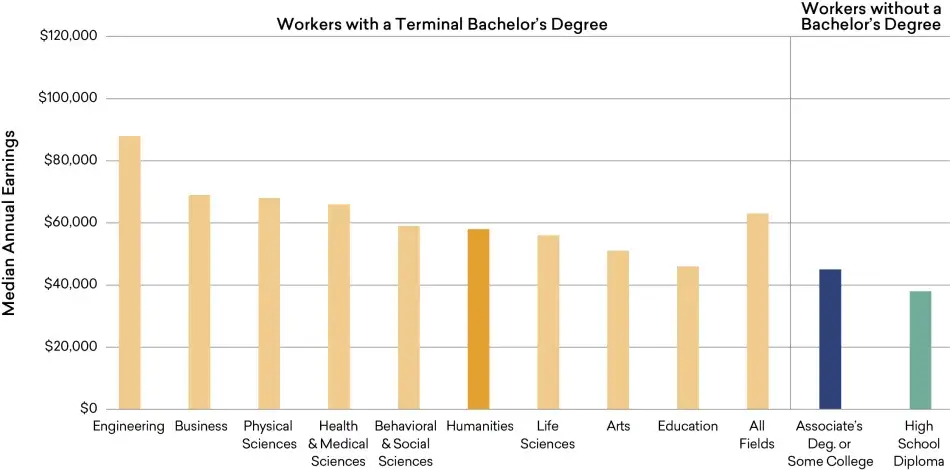Earnings Comparison: Workers with a Terminal Bachelor’s Degree (by Field of Degree) versus Those without a Four-Year Degree, 2018
Earnings Comparison: Workers8 with a Terminal Bachelor’s Degree (by Field of Degree) versus Those without a Four-Year Degree, 2018

Earnings tend to be the focus of conversations about the value of college degrees, in part because they are relatively easy to measure. Median annual earnings for workers with a terminal bachelor’s degree in the humanities stood at $58,000 in 2018, which was somewhat below the median for all college graduates ($63,000) but similar to the earnings for graduates from the behavioral/social and life sciences and considerably higher than those with a baccalaureate degree in education ($46,000). The relatively low median earnings of education majors are notable given their high levels of job and life satisfaction (discussed elsewhere in this publication).
While humanities graduates’ earnings were lower than those for engineering, business, and some science graduates, they were much higher than those of workers who lack a bachelor’s degree—both those with an associate’s degree or some college ($45,000) and those with only a high school diploma ($38,000).9